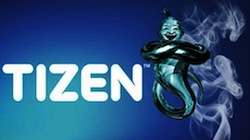The association behind Linux-based independent open source mobile operating system Tizen has announced 36 new partners in the hope of accelerating its development and commercialisation.
The new partners, which include eBay, Konami, McAfee, Nokia HERE, Sharp, TrendMicro, Open Mobile, AppCarousel and Mobica, show that the Tizen Foundation is looking to speed up the development and commercial launch of Tizen-based devices.
Competition in the alternative OS arena received a shot in the arm in February this year when the Telefónica-backed Mozilla Firefox OS launched.
Tizen supports HTML5, JavaScript, Ajax and CSS, which enable mobile applications to work, no matter the operating system or mobile OS, so that developers can write apps just once that run on all devices.
With the open APIs available from HTML5, developers will be able to use existing native code and open source projects written in C/C++ to create hybrid applications.
Ryoichi Sugimura, a Tizen Association Board Member from NTT DoCoMo, said the OS is attracting support from “all segments of the connected device ecosystem”.
The new partners join Fujitsu, Huawei, Intel, KT, NEC CASIO Mobile Communications, NTT DOCOMO, Orange, Panasonic, Samsung, SK Telecom, Sprint and Vodafone.
“One of the biggest benefits of Tizen to partners is the absence of application or feature mandates, allowing the OS to be customised based on what it is best for the end customer,” added Sugimura.
“This allows operators and some device manufacturers to select the provider of features and services that makes the most sense given the type of device, the location of the customer and the most popular use cases for that device. By democratising this portion of the product development, Tizen is driving increased innovation and competition in the industry.”
Formerly known as LiMo, the Tizen mobile OS was originally a project begun in 2007 between Samsung, Motorola, NEC, NTT DoCoMo, Panasonic Mobile Communications and Vodafone, featuring the Enlightenment window manager created by Carsten Haitzler and the Enlightenment Foundation Libraries (EFL), a set of open source graphics libraries developed from the Enlightenment window manager project.
In 2009, Samsung began developing its own proprietary handset OS known as Bada, while Intel and Nokia also had a similar project going with the Linux Foundation known as “MeeGo”.
In 2011, Intel and the Linux Foundation left MeeGo and joined the LiMo Foundation, which became the Tizen Association, and in 2012, Samsung folded its Bada OS into Tizen too.
Nokia’s MeeGo is now known as “Mer” and ex-Nokia employees founded Jolla to develop Sailfish OS, which will appear on the new Jolla device at the end of 2013.
Mobile Europe’s fourth annual industry survey is now live. Click here to take part.



